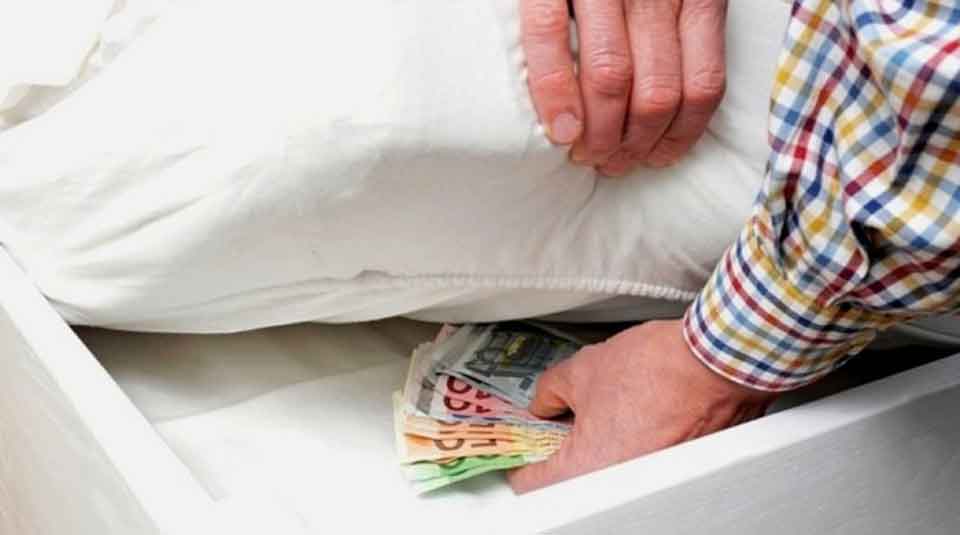Mattress cash is used to pay taxes

Money has been dug out from under mattresses to pay a large part of citizens’ tax payments in the latter part of this year. This amount is estimated at around 5 billion euros and it is the figure by which the physical money circulating in the market has been reduced, as recorded by the Bank of Greece.
Central bank data show that cash in circulation (i.e. not deposited in bank accounts) had decreased at the end of October to 43.8 billion euros from 49 billion at end-October 2015.
If one deducts from that amount the 29.3 billion euros that the European Central Bank distributes in the form of banknotes and which is in Greek people’s pockets, then the remaining 14.5 billion is the money stored in safe deposit boxes and under mattresses. This figure has fallen 6.5 billion euros within one year, from 21 billion in October 2015.
The amount of cash outside of the banks soared in 2012, the year of great uncertainty and the twin general elections: It came to 22.3 billion euros then, but as the uncertainty began to recede it gradually dropped to just 4 billion in November 2014.
When the snap elections were called a month later, the figure started growing again to peak at 22.8 billion euros in June 2015, the month which ended with the introduction of capital controls. The money that flowed out of banks from December 2014 to June 2015 was stashed away in safe deposit boxes and in people’s homes.
The figure then stabilized for almost a year before starting to decline again in June this year when the income tax dues were confirmed. It has been dropping by about 1 billion euros per month. With deposit balances remaining more or less the same in recent months, it is clear that the huge amounts of money needed for the payment of income tax and the Single Property Tax (ENFIA) since July have come from safe deposit boxes and mattresses.
The lifting of controls this summer on the new money entering bank accounts has not helped Greek deposits grow, as they remain at the historic low of 102.2 billion euros. The reason is that the uncertainty continues to concern the market and the country.





